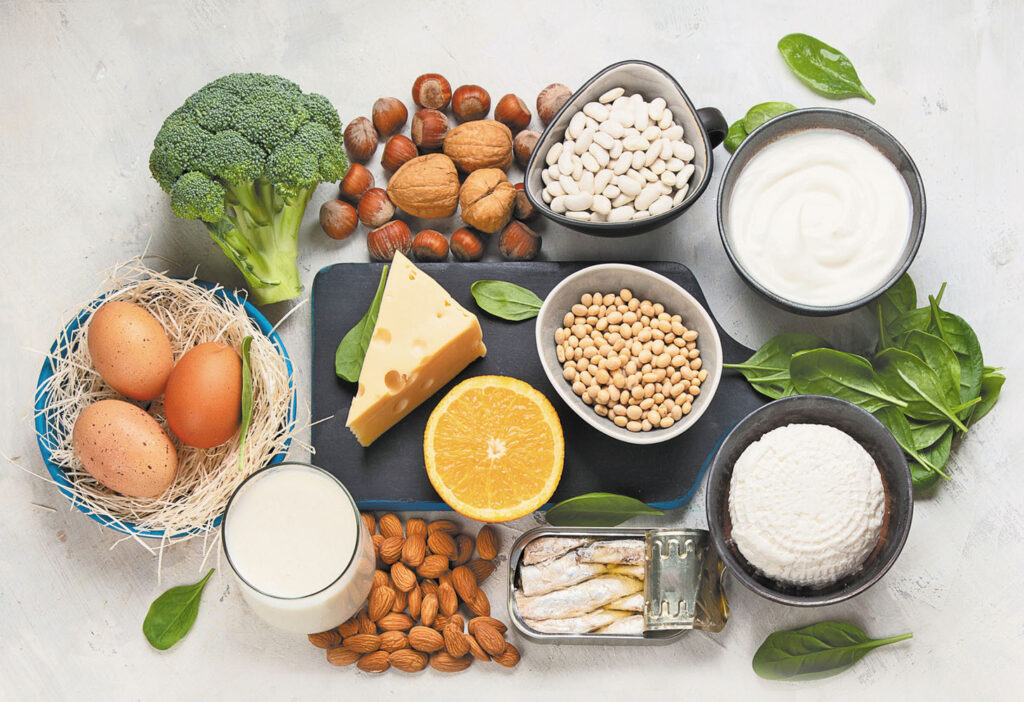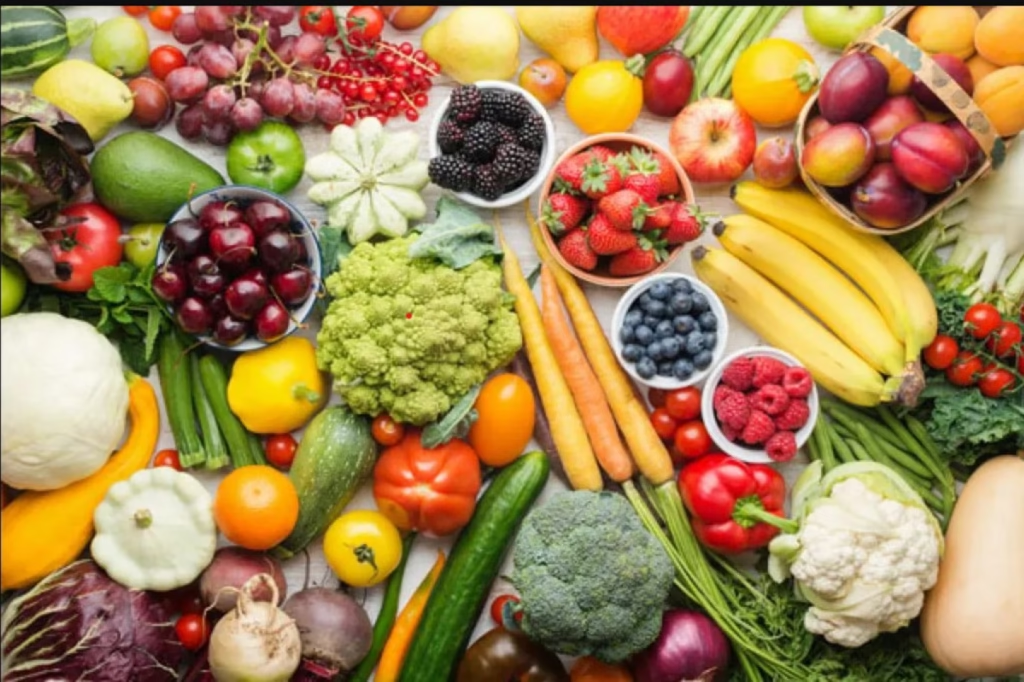In today’s fast-paced world, maintaining optimal health can feel like a daunting task. With busy schedules, processed foods, and endless dietary fads, it’s easy to overlook the foundation of wellness: vital source nutrition. At https://tastetrove.net/ we believe that understanding and incorporating essential nutrients into your diet is the key to unlocking a healthier, more vibrant you. This comprehensive guide will explore what vital source nutrition means, why it’s critical for your well-being, and how you can integrate it into your daily life to boost your health.
What Is Vital Source Nutrition?
Vital source nutrition refers to the practice of prioritizing foods and supplements that provide the essential nutrients your body needs to function at its best. These nutrients include macronutrients (carbohydrates, proteins, and fats) and micronutrients (vitamins and minerals), which work together to support everything from energy production to immune health. By focusing on nutrient-dense foods and strategic supplementation, vital source nutrition ensures your body receives the building blocks for optimal performance.
At TasteTrove, we’re passionate about helping you navigate the world of nutrition. Whether you’re looking to improve your energy levels, support your immune system, or enhance your mental clarity, vital source nutrition is the foundation of a balanced and thriving lifestyle. Let’s dive into the core components of this approach and how they can transform your health.
The Importance of Essential Nutrients
Your body relies on a steady supply of essential nutrients to perform critical functions, such as repairing tissues, producing energy, and maintaining hormonal balance. These nutrients are classified into two main categories:
- Macronutrients: These are the nutrients your body needs in large amounts, including:
- Carbohydrates: The primary source of energy for your body and brain. Opt for complex carbs like whole grains, fruits, and vegetables for sustained energy. Learn more about choosing the right carbs in our Guide to Healthy Carbohydrates.
- Proteins: Essential for muscle repair, immune function, and enzyme production. Sources include lean meats, fish, eggs, beans, and plant-based proteins like tofu.
- Fats: Crucial for brain health, hormone production, and nutrient absorption. Focus on healthy fats from avocados, nuts, seeds, and olive oil.
- Micronutrients: These are needed in smaller amounts but are equally vital. They include:
- Vitamins: Such as Vitamin C for immune support, Vitamin D for bone health, and B vitamins for energy metabolism.
- Minerals: Including calcium for strong bones, iron for oxygen transport, and magnesium for muscle and nerve function.
Without a balanced intake of these nutrients, your body may struggle to maintain optimal health, leading to fatigue, weakened immunity, and even chronic diseases. According to the World Health Organization, nutrient deficiencies are a global health concern, affecting millions of people worldwide.

Key Nutrients for Optimal Health
To embrace vital source nutrition, it’s essential to understand the specific nutrients that play a starring role in your health. Below, we highlight some of the most critical nutrients and how to incorporate them into your diet.
1. Vitamin D: The Sunshine Vitamin
Vitamin D is crucial for bone health, immune function, and mood regulation. It’s primarily synthesized through sun exposure, but many people are deficient due to limited sunlight or dietary intake. Foods rich in Vitamin D include fatty fish (like salmon and mackerel), egg yolks, and fortified dairy products. If you’re struggling to get enough, consider a high-quality Vitamin D supplement, as recommended by the National Institutes of Health.
TasteTrove Tip: Try our Salmon and Quinoa Bowl Recipe for a delicious, Vitamin D-packed meal.
2. Omega-3 Fatty Acids: Brain and Heart Health
Omega-3 fatty acids, found in fatty fish, flaxseeds, chia seeds, and walnuts, are essential for reducing inflammation, supporting heart health, and boosting cognitive function. Studies from the American Heart Association show that omega-3s can lower the risk of heart disease and improve cholesterol levels.
TasteTrove Tip: Incorporate flaxseeds into your smoothies with our Superfood Smoothie Guide.
3. Magnesium: The Relaxation Mineral
Magnesium supports over 300 biochemical reactions in the body, including muscle relaxation, nerve function, and energy production. It’s found in leafy greens, nuts, seeds, and whole grains. Many people are deficient in magnesium due to soil depletion and processed diets, as noted by the National Institutes of Health.
TasteTrove Tip: Add spinach to your salads or try our Magnesium-Rich Green Salad Recipe.
4. Vitamin C: Immune System Booster
Vitamin C is a powerful antioxidant that supports immune health, skin vitality, and tissue repair. Citrus fruits, bell peppers, strawberries, and broccoli are excellent sources. The Mayo Clinic recommends consuming Vitamin C daily to maintain optimal levels.
TasteTrove Tip: Whip up a refreshing Citrus Power Smoothie to start your day with a Vitamin C boost.
5. Protein: The Building Block of Life
Protein is essential for muscle growth, tissue repair, and immune function. Aim for a variety of sources, including lean meats, fish, eggs, legumes, and plant-based options like lentils and quinoa. The Harvard T.H. Chan School of Public Health emphasizes the importance of diversifying protein sources to meet nutritional needs.
TasteTrove Tip: Check out our High-Protein Vegetarian Meal Plan for plant-based inspiration.
How to Incorporate Vital Source Nutrition into Your Diet
Now that you understand the importance of essential nutrients, let’s explore practical ways to integrate vital source nutrition into your daily routine.
1. Prioritize Whole Foods
Whole foods are the cornerstone of vital source nutrition. Unlike processed foods, which are often stripped of nutrients, whole foods like fruits, vegetables, whole grains, nuts, and lean proteins are packed with vitamins, minerals, and fiber. Aim to fill your plate with a rainbow of colors to ensure a wide range of nutrients.
Action Step: Plan your meals using our Weekly Meal Prep Guide to incorporate nutrient-dense foods effortlessly.
2. Mindful Supplementation
While whole foods should be your primary nutrient source, supplements can fill gaps in your diet, especially for nutrients like Vitamin D, omega-3s, or magnesium. Consult with a healthcare provider to determine your specific needs, and choose high-quality supplements from reputable brands. The ConsumerLab website is a great resource for researching supplement quality.
Action Step: Explore our Guide to Choosing Supplements for tips on selecting the right products.
3. Stay Hydrated
Water is essential for nutrient absorption, digestion, and overall health. Dehydration can impair your body’s ability to utilize nutrients effectively. Aim for at least 8 cups of water daily, and enhance hydration with electrolyte-rich foods like bananas or coconut water.
TasteTrove Tip: Try our Infused Water Recipes for a flavorful hydration boost.
4. Balance Your Macronutrients
A balanced diet includes the right proportions of carbohydrates, proteins, and fats. A general guideline is to aim for 45-65% of calories from carbs, 10-35% from protein, and 20-35% from fats, as suggested by the USDA Dietary Guidelines. Adjust these ratios based on your activity level and health goals.
Action Step: Use our Macronutrient Calculator to personalize your intake.
5. Listen to Your Body
Everyone’s nutritional needs are unique. Factors like age, activity level, and health conditions influence your requirements. Pay attention to signs of nutrient deficiencies, such as fatigue, brittle nails, or frequent colds, and adjust your diet accordingly.
Action Step: Learn to recognize deficiency symptoms with our Nutrient Deficiency Guide.
The Benefits of Vital Source Nutrition
Adopting a vital source nutrition approach offers numerous benefits, including:
- Increased Energy: Nutrient-dense foods provide sustained energy, reducing afternoon slumps.
- Stronger Immunity: Vitamins like C and D, along with minerals like zinc, bolster your immune system.
- Improved Mental Clarity: Omega-3s and B vitamins support brain health, enhancing focus and memory.
- Better Physical Performance: Adequate protein and carbs fuel your workouts and aid recovery.
- Long-Term Health: A nutrient-rich diet reduces the risk of chronic diseases like heart disease, diabetes, and osteoporosis.
Common Myths About Nutrition
There’s a lot of misinformation about nutrition, which can make it hard to know what’s true. Let’s debunk some common myths:
- Myth 1: All Fats Are Bad
Healthy fats, like those in avocados and nuts, are essential for health. Focus on unsaturated fats and avoid trans fats. Learn more in our Healthy Fats Guide. - Myth 2: You Need to Take Multivitamins Daily
If you eat a balanced diet, you may not need a multivitamin. Whole foods often provide sufficient nutrients, but targeted supplementation can help if deficiencies exist. - Myth 3: Carbs Make You Gain Weight
Not all carbs are created equal. Complex carbs like whole grains and vegetables are nutrient-dense and support weight management when consumed in moderation.
Practical Tips for Sustained Success
To make vital source nutrition a sustainable part of your life, consider these tips:
- Meal Prep: Prepare nutrient-dense meals in advance to save time and stay on track. Our Meal Prep 101 Guide has you covered.
- Read Labels: Choose packaged foods with minimal additives and high nutrient content.
- Eat Seasonally: Seasonal produce is fresher, more nutrient-rich, and often more affordable.
- Experiment with Recipes: Keep your diet exciting by trying new nutrient-packed recipes from TasteTrove’s Recipe Collection.
- Stay Consistent: Small, consistent changes lead to lasting results. Start by adding one nutrient-dense food to each meal.
Conclusion
Vital source nutrition is more than a diet—it’s a lifestyle that empowers you to take control of your health. By prioritizing nutrient-dense foods, staying hydrated, and supplementing wisely, you can boost your energy, strengthen your immunity, and enhance your overall well-being. At TasteTrove, we’re here to support your journey with practical tips, delicious recipes, and expert advice.
Ready to transform your health? Start today by exploring our Nutrition Hub for more resources, recipes, and guides to make vital source nutrition a seamless part of your life. Your body will thank you!

Vital Source Nutrition: FAQs and Recommended Products
At TasteTrove, we’re committed to helping you embrace vital source nutrition—a lifestyle focused on incorporating essential nutrients to boost your health. To complement our in-depth guide on Vital Source Nutrition: Boost Your Health with Essential Nutrients, this article addresses frequently asked questions (FAQs) about vital source nutrition and recommends products to support your journey. Whether you’re new to nutrition or looking to optimize your diet, this resource will clarify common queries and suggest tools to enhance your wellness.
Frequently Asked Questions (FAQs) About Vital Source Nutrition
Below, we answer the most common questions about vital source nutrition to help you understand its benefits and how to implement it effectively.
1. What is vital source nutrition, and why is it important?
Answer: Vital source nutrition is the practice of prioritizing nutrient-dense foods and supplements to provide your body with essential macronutrients (carbohydrates, proteins, fats) and micronutrients (vitamins, minerals) for optimal health. It’s important because these nutrients support critical functions like energy production, immune health, and tissue repair. A diet lacking in essential nutrients can lead to fatigue, weakened immunity, and chronic health issues, as noted by the World Health Organization.
TasteTrove Tip: Start with our Nutrition 101 Guide to learn the basics of nutrient-dense eating.
2. How do I know if I’m getting enough essential nutrients?
Answer: Signs of nutrient deficiencies include fatigue, brittle hair or nails, frequent colds, or poor concentration. A balanced diet with a variety of whole foods typically meets most needs, but blood tests ordered by a healthcare provider can confirm deficiencies. Tools like our Nutrient Deficiency Guide can help you identify symptoms and adjust your diet.
3. Can I rely on supplements alone for vital source nutrition?
Answer: Supplements can fill gaps in your diet, but they shouldn’t replace whole foods, which offer a complex mix of nutrients, fiber, and phytochemicals. The National Institutes of Health recommends using supplements to address specific deficiencies, such as Vitamin D or omega-3s, under medical guidance.
TasteTrove Tip: Check out our Guide to Choosing Supplements for tips on selecting high-quality products.
4. What are the best foods for vital source nutrition?
Answer: Focus on whole, nutrient-dense foods like:
- Fruits and Vegetables: Berries, leafy greens, and bell peppers for vitamins and antioxidants.
- Whole Grains: Quinoa, brown rice, and oats for complex carbs and fiber.
- Proteins: Lean meats, fish, eggs, beans, and tofu for muscle repair.
- Healthy Fats: Avocados, nuts, seeds, and olive oil for heart and brain health.
Explore our Nutrient-Dense Meal Plans for recipe inspiration.
5. How can I make vital source nutrition affordable?
Answer: Eating nutrient-dense foods doesn’t have to break the bank. Buy seasonal produce, shop in bulk for grains and legumes, and choose frozen fruits and vegetables, which are often just as nutritious. Planning meals with our Budget-Friendly Meal Prep Guide can help you save money while eating well.
6. Is vital source nutrition suitable for specific diets like vegan or keto?
Answer: Yes, vital source nutrition is adaptable to any dietary preference. For vegans, focus on plant-based proteins (lentils, chickpeas) and fortified foods (like almond milk for Vitamin B12). For keto, prioritize healthy fats (avocado, coconut oil) and low-carb vegetables (spinach, broccoli). Our Vegan Nutrition Guide and Keto Meal Ideas offer tailored tips.
7. How does hydration fit into vital source nutrition?
Answer: Water is essential for nutrient absorption, digestion, and overall health. Aim for 8–10 cups daily, adjusting for activity level and climate. Electrolyte-rich foods like bananas or coconut water can enhance hydration. Try our Infused Water Recipes for a tasty twist.
8. Can vital source nutrition help with weight management?
Answer: Yes, by focusing on nutrient-dense, whole foods, you can feel fuller longer, reduce cravings, and maintain a healthy weight. The Harvard T.H. Chan School of Public Health emphasizes that balanced nutrition supports sustainable weight management.
TasteTrove Tip: Use our Macronutrient Calculator to personalize your intake for weight goals.
9. How often should I reassess my nutritional needs?
Answer: Nutritional needs change with age, activity level, and health conditions. Reassess your diet every 6–12 months or after major life changes (e.g., pregnancy, increased exercise). Consult a dietitian for personalized advice, and use our Nutrition Check-In Guide to track your progress.
10. Are there risks to focusing too much on vital source nutrition?
Answer: Overemphasizing certain nutrients or supplements can lead to imbalances. For example, excessive Vitamin A or iron can be harmful, as noted by the Mayo Clinic. Balance is key—focus on variety and moderation.
Recommended Products for Vital Source Nutrition
To support your vital source nutrition journey, we’ve curated a list of products that align with TasteTrove’s mission to promote health and wellness. These products are designed to complement a nutrient-dense diet and help you meet your nutritional goals. Always consult a healthcare provider before adding supplements to your routine.
1. High-Quality Multivitamin
Product: Nature Made Multivitamin Tablets
Why We Love It: A balanced blend of essential vitamins and minerals, including Vitamin D, C, and zinc, to fill dietary gaps.
Where to Buy: Available on Amazon or major retailers.
How to Use: Take one tablet daily with a meal to support overall nutrient intake.
2. Omega-3 Fish Oil Supplement
Product: Nordic Naturals Ultimate Omega
Why We Love It: High-potency omega-3s (EPA and DHA) for heart, brain, and joint health, sourced from sustainable fish.
Where to Buy: Find it on Nordic Naturals or Amazon.
How to Use: Take two softgels daily with food, or as directed by a healthcare provider.
TasteTrove Tip: Pair with our Omega-3 Rich Salmon Recipe for a dietary boost.
3. Magnesium Supplement
Product: Thorne Research Magnesium CitraMate
Why We Love It: Combines magnesium citrate and malate for optimal absorption, supporting muscle relaxation and energy production.
Where to Buy: Available on Thorne or Amazon.
How to Use: Take 1–2 capsules daily, preferably in the evening, to promote relaxation.
4. Vitamin C Chewables
Product: Garden of Life Vitamin C – Vitamin Code Raw Vitamin C
Why We Love It: Whole food-based Vitamin C with bioflavonoids for immune support and antioxidant protection.
Where to Buy: Available on Garden of Life or Amazon.
How to Use: Take two capsules daily, with or without food.
TasteTrove Tip: Enjoy with our Citrus Power Smoothie for a double dose of Vitamin C.
5. Plant-Based Protein Powder
Product: Orgain Organic Plant-Based Protein Powder
Why We Love It: A vegan-friendly protein source with 21 grams of protein per serving, perfect for smoothies or post-workout recovery.
Where to Buy: Available on Orgain or Amazon.
How to Use: Blend one scoop with water or plant-based milk for a nutrient-packed shake.
TasteTrove Tip: Try it in our High-Protein Smoothie Recipes.

6. Reusable Water Bottle with Infuser
Product: Hydracy Fruit Infuser Water Bottle
Why We Love It: Encourages hydration with a built-in infuser for adding fruits or herbs, making water more flavorful and nutrient-rich.
Where to Buy: Available on Amazon.
How to Use: Fill with water and add slices of citrus, berries, or mint for a refreshing, nutrient-enhanced drink.
TasteTrove Tip: Get creative with our Infused Water Recipes.
7. Meal Prep Containers
Product: Prep Naturals Glass Meal Prep Containers
Why We Love It: BPA-free glass containers with dividers to portion out nutrient-dense meals, perfect for maintaining a balanced diet.
Where to Buy: Available on Amazon.
How to Use: Prepare meals in advance using our Weekly Meal Prep Guide.
How to Choose the Right Products
When selecting products for vital source nutrition:
- Check Quality: Look for third-party testing (e.g., NSF or USP certification) for supplements, as recommended by ConsumerLab.
- Read Labels: Avoid products with artificial additives or excessive sugars.
- Align with Needs: Choose products that address your specific dietary gaps, such as low Vitamin D or omega-3 intake.
- Sustainability: Opt for brands with eco-friendly practices, like Nordic Naturals or Orgain.
Conclusion
Vital source nutrition is a powerful way to enhance your health by prioritizing essential nutrients through whole foods and strategic supplementation. By addressing common questions and recommending high-quality products, we hope to empower you to make informed choices. At TasteTrove, we’re here to support your wellness journey with practical advice, delicious recipes, and trusted resources.
Ready to get started? Explore our Nutrition Hub for more tips, recipes, and tools to make vital source nutrition a seamless part of your life. Your healthiest self awaits!
